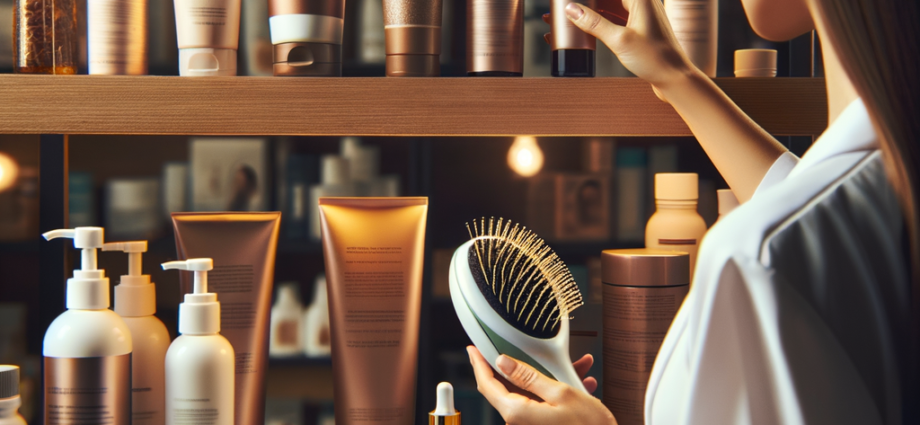Hair is not just a matter of style; it’s a reflection of overall health. The condition of our hair can often indicate the state of our internal health, with nutrition playing a crucial role. In this article, we’ll delve into the intricate relationship between diet and female hair loss, exploring how the foods we eat can either promote luscious locks or contribute to hair thinning and loss.
The Basics of Hair Health
Understanding what constitutes healthy hair is essential before delving into the role of nutrition. Each strand of hair is composed of a protein called keratin, which is produced in hair follicles in the outer layer of the skin. Factors such as genetics, age, hormones, and overall health determine the quality and growth rate of hair.
The Link Between Nutrition and Hair Health
It’s no secret that a well-balanced diet is essential for overall health, but its impact on hair health is often underestimated. The nutrients we consume play a significant role in the growth, strength, and appearance of our hair. A deficiency in certain vitamins, minerals, and other essential nutrients can lead to hair thinning, dullness, and even hair loss.
Impact of Diet on Hormonal Balance
Hormonal imbalances can disrupt the hair growth cycle and lead to Female hair loss treatment. Certain foods can help regulate hormone levels and promote hair growth, while others can exacerbate hormonal issues. Maintaining a balanced diet rich in whole foods can help support hormonal balance and prevent hair loss.
Common Nutritional Deficiencies
Certain nutrients are particularly vital for maintaining healthy hair, and deficiencies in these nutrients can manifest in hair-related issues. For instance, inadequate intake of protein, iron, vitamin D, and omega-3 fatty acids can all contribute to hair loss or thinning.
The Role of Protein
Protein is the building block of hair, making up about 80-90% of its structure. Without an adequate intake of protein, hair growth can slow down, and existing hair can become weak and brittle. Including sources of lean protein such as chicken, fish, eggs, and legumes in the diet is crucial for promoting healthy hair growth.
Vitamins and Minerals
Vitamins and minerals play various roles in maintaining hair health. Vitamin A helps produce sebum, the body’s natural oil, which keeps the scalp moisturized. B-complex vitamins support the production of red blood cells, which carry oxygen and nutrients to the scalp and hair follicles. Vitamin C aids in collagen production, essential for hair strength, while vitamin D supports hair follicle cycling. Vitamin E acts as an antioxidant, protecting hair cells from damage. Minerals like iron, zinc, and selenium are also crucial for healthy hair growth.
Omega-3 Fatty Acids
Omega-3 fatty acids are essential fats that cannot be produced by the body and must be obtained through diet. These fats play a crucial role in maintaining scalp health, promoting hair growth, and preventing hair loss. Sources of omega-3s include fatty fish like salmon and mackerel, flaxseeds, chia seeds, and walnuts.
Antioxidants
Antioxidants help protect hair follicles from damage caused by free radicals, which can lead to hair loss and premature aging. Including antioxidant-rich foods such as berries, spinach, kale, and nuts in the diet can help maintain healthy hair and scalp.
Hydration and Hair
Proper hydration is essential for overall health, including the health of our hair. Dehydration can lead to dry, brittle hair that is more prone to breakage. Drinking an adequate amount of water each day helps keep the scalp hydrated and promotes healthy hair growth.
Foods to Avoid
Certain foods can negatively impact hair health and contribute to hair loss. These include processed foods high in sugar and unhealthy fats, which can lead to inflammation and oxidative stress in the body. Limiting consumption of these foods and opting for whole, nutrient-dense foods instead can help maintain healthy hair.
Meal Planning for Healthy Hair
Creating a well-balanced meal plan that includes a variety of nutrient-rich foods is essential for promoting healthy hair. Incorporating a mix of lean proteins, fruits, vegetables, whole grains, and healthy fats into daily meals ensures that the body receives all the nutrients it needs for optimal hair health.
Supplements for Hair Health
In some cases, dietary supplements may be necessary to address specific nutrient deficiencies or support hair growth. Biotin, collagen, and specific vitamins and minerals formulated for hair health are among the supplements commonly used to promote hair growth and thickness.
Lifestyle Factors
In addition to diet, lifestyle factors such as stress management and regular exercise also play a role in maintaining healthy hair. Chronic stress can disrupt the hair growth cycle and lead to hair loss, while exercise improves circulation, which is vital for delivering nutrients to the scalp and hair follicles.
Conclusion
In conclusion, the connection between diet and female hair loss is undeniable. By ensuring a diet rich in essential nutrients, maintaining proper hydration, and adopting healthy lifestyle habits, women can support optimal hair health and minimize the risk of hair loss. Making small changes to dietary and lifestyle habits can have a significant impact on the health and appearance of one’s hair, promoting confidence and overall well-being.

